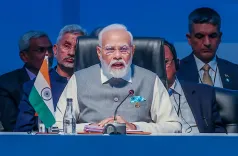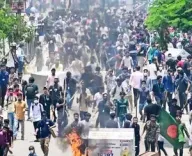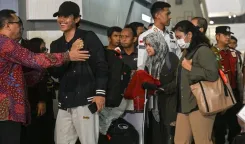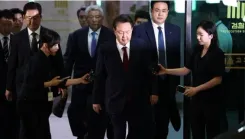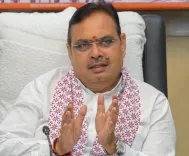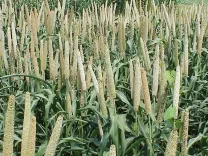What Led to the Extended Detention of Two Military Commanders in South Korea?
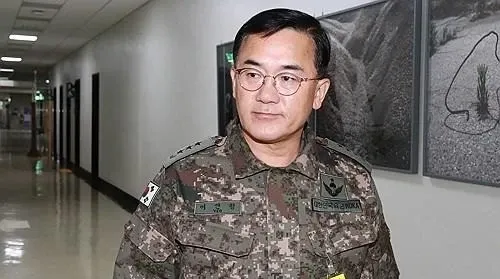
Synopsis
Key Takeaways
- South Korean military court issues new warrants for detention.
- Concerns raised over evidence destruction.
- Charges include perjury and breach of military secrets.
- Former President Yoon Suk Yeol questioned regarding martial law.
- Political tensions escalate amid ongoing investigations.
Seoul, June 30 (NationPress) A military tribunal in South Korea has issued new warrants to formally prolong the detention of two military leaders due to their suspected involvement in former President Yoon Suk Yeol's brief martial law declaration.
The tribunal, located in central Seoul, confirmed that the warrants will continue the detention of Lt. Gen. Yeo In-hyung, previously the head of the Defence Counterintelligence Command, and Maj. Gen. Moon Sang-ho, former leader of the Defence Intelligence Command, as reported by officials.
The court expressed concerns that both officers might jeopardize evidence, leading to the issuance of the new warrants, as per Yonhap news agency.
Initially, prosecutors sought bail for Yeo and Moon, who were anticipated to be released after their mandatory six-month detention period.
However, they rescinded their request following additional indictments against the officers for perjury and breaching military secrecy earlier this month.
On June 28, Yoon Suk Yeol faced questioning from a special counsel team regarding insurrection allegations tied to his martial law declaration from December.
This marked the first instance of Yoon being interrogated at the prosecutor's office, where he had previously worked as a prosecutor.
Yoon arrived in a black van, maintaining a stoic demeanor as he approached the entrance without responding to media inquiries. His legal team had sought to have him enter through the underground parking area for privacy, but this request was denied.
On June 25, a Seoul court rejected a petition to issue a detention warrant for the former President linked to his martial law declaration last year.
The Seoul Central District Court dismissed the special counsel's request as part of an ongoing investigation into Yoon's alleged interference with official duties and other related charges pertaining to the martial law declaration in December.
Following the court's ruling, the special counsel team, led by Cho Eun-suk, promptly notified Yoon to appear at 9 a.m. on Saturday, with officials stating that they would consider pursuing a formal detention warrant if he fails to comply.
"The court rejected the request based on Yoon's expressed willingness to adhere to the special counsel's summons," the team noted.
"Should he fail to appear, we will contemplate seeking a formal warrant," they added.
Prior to the case being referred to special counsel, law enforcement had summoned Yoon for questioning on three occasions—June 5, 12, and 19—but he declined to respond to any of these summonses, prompting the special counsel to seek the detention warrant, according to officials.

